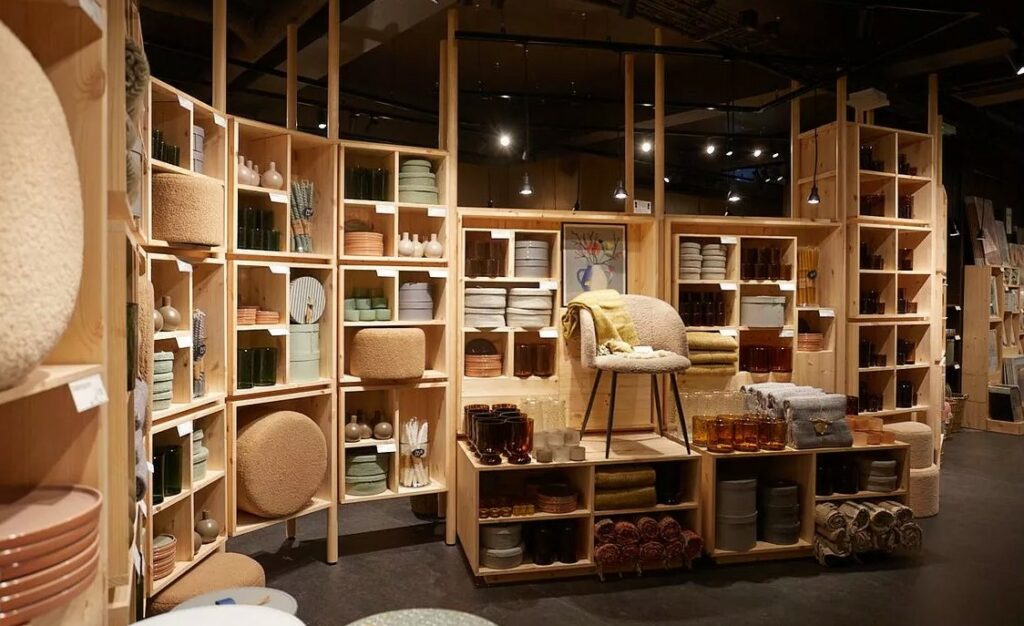Nicole Sharples, Director of Business Helpline Group, looks into what happens next when a furniture business fails and what options are available.

The UK furniture industry has always been fiercely competitive, but in recent years it has become increasingly fragile.
With rising overheads, ongoing supply chain disruptions, and pressure from creditors, many directors are facing an uncomfortable reality: their business may no longer be solvent.
In this article, the first of a three-part series, we will break down what really happens when a furniture company becomes insolvent, the responsibilities of its directors, and how you can act early to protect yourself, your staff, and your reputation.
What Does Insolvency Actually Mean?
In simple terms, a company is insolvent when it can no longer pay its debts as they fall due, or its liabilities exceed its assets.
For many furniture businesses, this moment arrives slowly. Cashflow tightens, suppliers shorten terms, HMRC may send letters, and suddenly directors find themselves juggling unpaid bills.
The important thing to understand is that once insolvency is suspected, directors have a legal duty to act in the best interest of creditors.
This changes everything, and inaction at this point can lead to serious personal consequences.
What Happens Once You Realise the Company is Insolvent?
Here is the typical process:
- Assessment
You will usually start by speaking with an insolvency expert. They will help assess whether the business can be rescued (through an Administration, Company Voluntary Arrangement, a Time to Pay arrangement with HMRC, or refinancing) or whether liquidation is the right path. - Cease Trading or Proceed Cautiously
Directors must be careful not to worsen the position for creditors. Continuing to take orders you know cannot be fulfilled or incurring more debt could be classed as wrongful trading. - Appointing a Liquidator
If a Creditors Voluntary Liquidation (CVL) is the chosen route, a licensed insolvency practitioner is appointed to handle everything. They will communicate with creditors, sell off any assets, and ensure proper closure of the company. - Director Investigations
The liquidator is legally required to submit a report on director conduct to the Insolvency Service. If you have acted responsibly, cooperated, and sought advice early, there is usually nothing to worry about.
Will You Be Held Personally Liable?
One of the biggest misconceptions among furniture business owners is that they will automatically be personally liable for the company’s debts.
In most cases, this isn’t true. If you haven’t signed personal guarantees, overdrawn a Director’s Loan Account (DLA), or engaged in wrongful or fraudulent trading, your liability typically remains limited to the company itself.
That said, if there are Bounce Back Loans, overdue taxes, or personal guarantees in play, it is vital to get advice. In many cases, an insolvency practitioner can negotiate with creditors or advise on steps to mitigate exposure.

What About Customer Refunds and Complaints?
In the furniture sector, customer deposits and delivery promises are a big concern when the company is under financial pressure.
If your business has taken pre-orders or deposits, it is likely those customers will become unsecured creditors in a liquidation scenario, meaning they may not receive their money or product.
Managing this with transparency is key.
It is possible to structure an orderly wind down that minimises reputational damage and a proposed Insolvency Practitioner can handle this communication and strategy in many cases.
What You Should Do Now If You’re Worried
If your furniture business is under pressure, perhaps sales are down, costs are up, or you are struggling to meet supplier and tax obligations, the best thing you can do is act early.
The earlier you take advice, the more options you will have.
Turnaround strategies, informal repayment plans, or even restructuring through administration may be on the table. Waiting until creditors are knocking on the door or court proceedings begin dramatically reduces those options.
Have you read: Creditors of 43 furnishing businesses owed over £20m
Final Thoughts…
Bringing an end to a Company is never an easy decision. For many directors, it is emotional, stressful, and tied up with years of hard work. But knowing the process, understanding your responsibilities, and acting early can make all the difference and in many cases even rescue the Company as a going concern.
In the next article in this series, we will dive into the most common creditor issues in the furniture industry and how to manage escalating pressure from suppliers, banks, and HMRC.
About the Author
Nicole Sharples is a Director at Business Helpline Group. With over 10 years’ experience helping company directors across the UK navigate business challenges, Nicole leads with empathy, integrity, and straight-talking advice.
Free 24 hour helpline: 0800 088 2142
www.businesshelpline.uk














